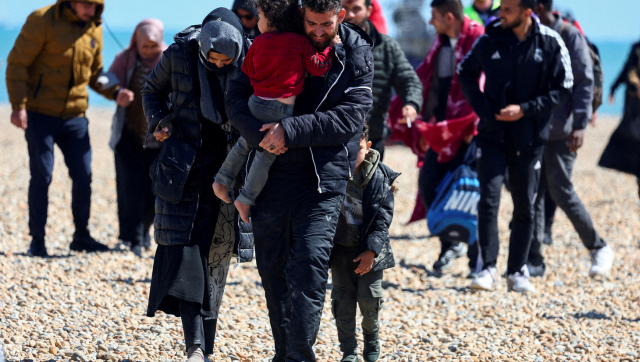Britain’s plan to send migrants to Rwanda made it to the UK’s highest court on Monday, with the government arguing that it was necessary to prevent Channel crossings while refugees and those seeking asylum maintained Rwanda was unsafe. In June, a lower court ruled that the plan to transport thousands of asylum seekers more than 4,000 miles (6,400 km) to East Africa was illegal because Rwanda was not a secure third country. Government attorneys urged the Supreme Court to overturn this decision. Recent laws would make the vast majority of people who get to Britain by small boat from France to have their asylum requests rejected and subject them to deportation. According to the London Court of Appeal, the programme was illegal under the British Human Rights Act, which made the European Convention on Human Rights (ECHR) a component of British law, because individuals transported to Rwanda ran the risk of being returned home where they may face persecution. Prime Minister Rishi Sunak’s promise to prevent the arrival of thousands of migrants in small boats off the south coast of England was severely damaged by that decision. James Eadie, a representative for the government, told the UK’s highest court on Monday that there was “a serious and pressing need to take effective steps that will act as a deterrent to those undertaking the perilous and sometimes life-threatening journey” over the Channel. Eight of the asylum seekers implicated in the case are being represented by Raza Husain, who argued that sending them to Rwanda put them at risk of being sent back to their home countries in violation of international law. He claimed that Rwanda was a “one-party, authoritarian state” whose government “repeatedly imprisons, tortures, and kills those it considers to be its opponents.” In its intervention in the appeal, the UN High Commissioner for Refugees (UNCHR) argues that it is unsafe to deport asylum seekers to Rwanda. In court documents, the agency’s attorneys stated that the organisation “maintains its unequivocal warning against the transfer of asylum seekers to Rwanda”. Legal teams for refugees from Syria, Iraq, Iran, Vietnam, and Sudan also want the court to rule that the system is illegal since refugees in Rwanda are subjected to cruel or inhumane treatment. The Rwandan government has declared that it will provide deported Britons the chance to start over safely in a different country. The outcome, which is likely to result in a final decision by year’s end, might have significant political ramifications. In an effort to turn around the fortunes of his party, Sunak, whose Conservatives are losing in surveys by roughly 20 points ahead of an election anticipated next year, has pledged to “stop the boats” as one of his five priorities. Surveys reveal that voters are still very concerned about immigration, which was a big component in the 2016 referendum decision for Britain to leave the European Union, and that the majority of people believe the government is managing the issue poorly. The government had scheduled its first flight to deport Rwandans in June of last year, but an injunction from the European Court of Human Rights prevented it at the last minute awaiting the outcome of all UK legal proceedings. To avoid another incident like this, some members of Sunak’s party want Britain to leave the ECHR. “Know this; I will do whatever is necessary to stop the boats,” Sunak told the Conservative conference. The court case comes at a time when governments all over the world are debating how to handle the influx of hundreds of thousands of migrants who are fleeing war zones or looking for better life in the West. While countries in Europe struggle with how to deal with the arrival of hundreds of thousands of migrants from Africa, Asia, and the Middle East, President Joe Biden’s administration in the United States announced it will add sections to a border wall to prevent record crossings from Mexico. (With agency inputs)
Surveys reveal that voters are still very concerned about immigration, which was a big component in the 2016 referendum decision for Britain to leave the European Union, and that the majority of people believe the government is managing the issue poorly
Advertisement
End of Article


)

)
)
)
)
)
)
)
)



